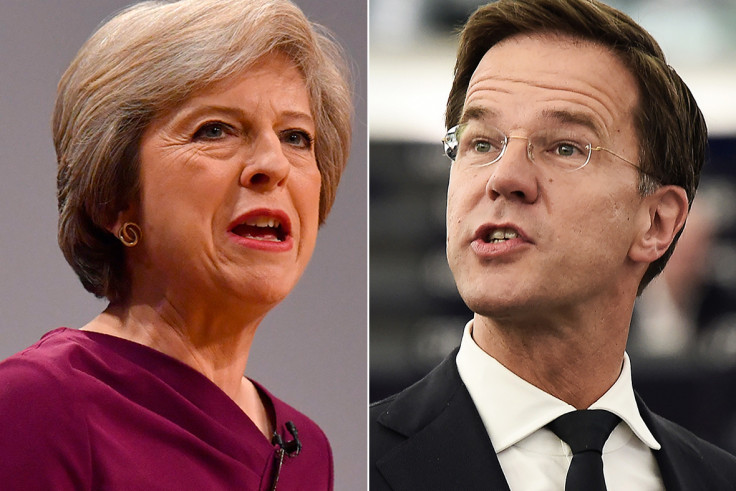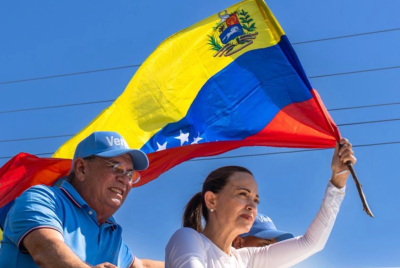Theresa May takes 'Brexit means Brexit' message to The Hague
Dutch PM Mark Rutte faces a general election in 2017, with Geert Wilders' right-wing party high in the polls.

Theresa May will take her "Brexit means Brexit" message to The Hague when she meets Dutch Prime Minister Mark Rutte today (10 October).
The Conservative premier will also travel to Marienborg to hold talks with Danish Prime Minister Minister Lars-Lokke Rasmussen.
The charm offensive comes after May was cheered on by the Tory faithful at the party's annual summit in Birmingham last week.
The prime minister promised to make a success of the UK's split from the EU, while ruling out giving a "running commentary" on negotiations.
May revealed those talks will start once Article 50 is triggered by March 2017, while the government plans to scrap the 1972 European Communities Act (ECA), which gives direct effect to all EU law, and replace it with a Great Repeal Bill to enshrine all EU law into UK law.
"We are leaving to become, once more, a fully sovereign and independent country – and the deal is going to have to work for Britain," she said.
"And that Britain – the Britain we build after Brexit – is going to be a Global Britain."
May spoke to Rutte and Rasmussen via telephone in August. A Downing Street spokesperson said the British prime minister said she wanted to approach Brexit negotiations in a "constructive and positive" way.
"[May] made clear that the UK wanted a positive relationship both with the EU and bilaterally with its member states after we had left the EU," the spokesperson added.
Rutte faces a general election in March 2017, with Geert Wilders' Party for Freedom riding high in the opinion polls. The right-winger has hit the headlines across Europe for his Eurosceptic and anti-Islam stance.
In a Donald Trump-esque move, his party reportedly called for a ban on all refugees and migrants from Islamic nations in August, according to the Associated Press.
May's meetings will come amid fears that the UK government will seek a so-called "hard Brexit" since the Conservatives have signaled prioritising immigration controls over access or membership of the EU's single-market.
© Copyright IBTimes 2025. All rights reserved.





















